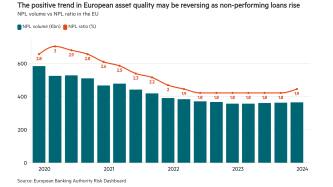As financial services regulators have been pushing firms for some time to accelerate diversity and inclusion progress in their workforces, some will be well prepared when the long-awaited Consultation Paper on Diversity and Inclusion (D&I) is released this month.
Nonetheless, the measurement and improvement of social mobility presents a singular challenge for all in the sector, which must be overcome in order to meet the regulators’ demands.
The Financial Conduct Authority (FCA) considers D&I to be crucial to better decision-making in firms which, in turn, should lead to better outcomes for consumers and markets.
Research also suggests that improving D&I makes good business sense, and that firms, including banks, which focus on social mobility and diverse workforces, are more profitable.
The regulators’ July 2021 Discussion Paper made clear its expectation that firms look wider than just protected characteristics when considering D&I. Interestingly it hinted at mandatory reporting on diversity data including socio-economic background. As such it is expected that this will be a feature of the forthcoming Consultation Paper.
Requiring banks to provide this sort of information on social mobility is an ambitious step forward, but it also presents challenges. And with those challenges come questions.
Where is the starting line for banks?
Many banks will recognise when their workforce, especially at the senior level, is disproportionately composed of people from higher socio-economic backgrounds, and they want to move the dial forward. However, just as many are unsure how best to address it. Fortunately, financial services regulators haven’t been the only authorities investigating how to drive greater social mobility.
Just 1% of senior leaders were ethnic minority females from working class backgrounds, compared with 45% of white males from professional backgrounds
Previous to the regulators’ 2021 Discussion Paper, the government commissioned a taskforce to boost socio-economic diversity at senior levels. By August 2022, the taskforce completed a comprehensive survey of 9000 employees across 49 financial and professional services firms. It revealed that 64% of senior leaders were from professional backgrounds, almost double the wider UK working population, at 37%.
Senior-level employees were three times more likely to have gone to a fee-paying or independent school than the national average. Only 21% of senior level respondents were from working class backgrounds. Just 1% of senior leaders were ethnic minority females from working class backgrounds, compared with 45% of white males from professional backgrounds.
The taskforce’s final report, “Breaking the Class Barrier”, published in November 2022, noted that while around half of all employees in the sector are from non-professional backgrounds, the same employees progress 25% slower, are likely to get paid up to £17,500 less per year (with no link to job performance), and only 36% of them have progressed to senior levels.
The report called for 50% of senior leaders across all financial and professional services firms to come from a working class or intermediate background by 2030.
The FCA has not held back on its own research.
A multi-firm review by the FCA at the end of 2022 showed that current D&I initiatives and data collection overwhelmingly focus on gender and ethnicity, and secondarily sexual orientation.
This means that even firms that do collect data are likely to find themselves with gaps to fill in order to meet the expected demands from the regulator and the taskforce to measure and improve social mobility.
What can banks do to fuel their journey?
Banks and financial institutions are well versed in the power of data, but some are not harnessing their workforce data to its greatest potential. Nonetheless, they are aware that if they are to meet the demands of the taskforce and the regulators, collecting the right workforce D&I data is essential.
Importantly, this data needs to be comparable, consistent and well structured across the industry so that areas and levels of underrepresentation can be identified and strategies developed to tackle it not just within firms, but between them.
Anticipating questions from the industry on what that comparable data is, the Financial Skills and Services Commission and the Social Mobility Commission outlined several data points of interest:
- parents’ occupation at around age 14 (which is considered to be the best indicator);
- the type of school attended at secondary level (including a separate question on fee-paying/independent school attendance facilitated by a 90% or more bursary);
- eligibility for free school meals;
- family attendance at university for new graduate hires (optional).
Why is socio-economic background data so important for D&I in financial services?
The requirement to collect this data constitutes a big change for the industry because there has been an historic concern that many D&I agendas neglect socio-economic background.
Nonetheless, the taskforce has made it clear what firms must do via its “five-point pathway” to reaching this 50% target:
- assigning clear accountability to senior leaders (ideally one executive sponsor, perhaps linking progress to discretionary pay or other rewards);
- collecting data on socio-economic background of staff at all levels by the end of 2024;
- monitoring socio-economic diversity at senior levels, and what works;
- setting organisation targets considering specific contexts;
- publishing data and what activities have worked.
In suggesting, not enforcing, the taskforce — much like the regulators — is dangling the carrot of reputational gain rather than the stick of penalties in front of banks. No bank will want to find out what happens if they don’t choose the carrot.
The taskforce also gave recommendations for sector bodies, regulators and government, including how to recognise and address the unique challenges of socio-economic status. We will all be waiting with interest for the financial services regulators’ approach.
More on diversity
When the regulators release their diversity consultation paper in September, how social mobility is to be defined, measured and improved must be of great interest. Banks will need to consider a strategy to address socio-economic underrepresentation, and how it will interact with their wider D&I programme.
There is undoubtedly cause for optimism but identifying the social mobility issues, targets and data needed to move forward is only part of the journey. The next stage of the race, of gathering data and making progress, will be just as arduous.

Sophie White is a partner, John Morgan is a principal associate, and James England is a senior associate at law firm Eversheds Sutherland.












